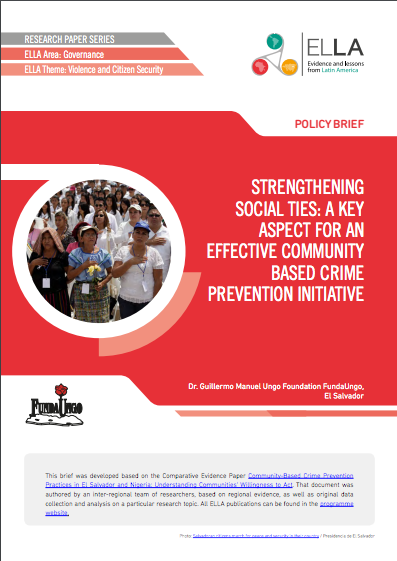This policy brief by FundaUngo focuses on why some communities are better able to confront high rates of crime compared to others. And, given that Community Based Crime Prevention (CBCP) operates in contexts that are far from uniform, the brief also seeks to understand what can be learnt about what drives better results in communities suffering high levels of insecurity.

We present to you a policy brief done by FundaUngo (El Salvador) as part of their involvement in the ELLA Project (Evidence and Lessons from Latin America).
This policy brief focuses on why some communities are better able to confront high rates of crime compared to others? And given that Community Based Crime Prevention (CBCP) operates in contexts that are far from uniform, what can be learnt about what drives better results in communities suffering high levels of insecurity?
The brief describes the results of a multi-country study conducted to explore the interplay between the severity of crime, levels of trust within a community, community participation rates, social ties and willingness to act, in order to understand why CBCP may be effective even in the face of severe crime.
The research in which this brief is based found that in communities where social ties are strong but trust in state crime prevention institutions is low, community-led crime prevention initiatives may be effective in addressing the problem of crime. On the other hand, in communities where the level of trust in state crime prevention institutions is high and the levels of social ties are weak, state-led crime prevention initiatives may provide a better option.
The study concludes that efforts aimed at improving CBCP in El Salvador should seek to strengthen and sustain social ties, collective action and civic participation in order to address crime and violence at the community level, combining presence of the state and high levels of participation from the communities.
You can access the document here: http://bit.ly/2pfasFa



